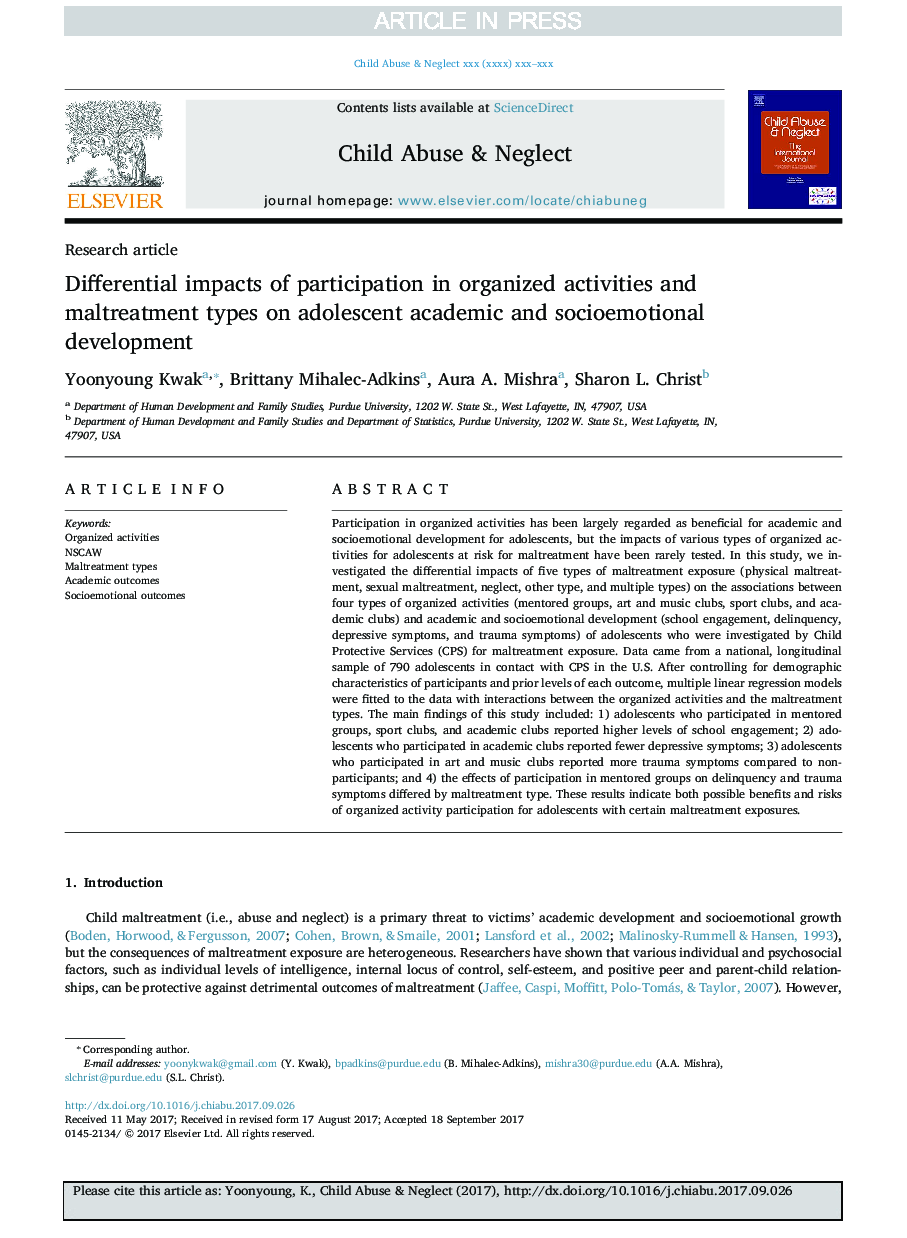| Article ID | Journal | Published Year | Pages | File Type |
|---|---|---|---|---|
| 6832046 | Child Abuse & Neglect | 2018 | 11 Pages |
Abstract
Participation in organized activities has been largely regarded as beneficial for academic and socioemotional development for adolescents, but the impacts of various types of organized activities for adolescents at risk for maltreatment have been rarely tested. In this study, we investigated the differential impacts of five types of maltreatment exposure (physical maltreatment, sexual maltreatment, neglect, other type, and multiple types) on the associations between four types of organized activities (mentored groups, art and music clubs, sport clubs, and academic clubs) and academic and socioemotional development (school engagement, delinquency, depressive symptoms, and trauma symptoms) of adolescents who were investigated by Child Protective Services (CPS) for maltreatment exposure. Data came from a national, longitudinal sample of 790 adolescents in contact with CPS in the U.S. After controlling for demographic characteristics of participants and prior levels of each outcome, multiple linear regression models were fitted to the data with interactions between the organized activities and the maltreatment types. The main findings of this study included: 1) adolescents who participated in mentored groups, sport clubs, and academic clubs reported higher levels of school engagement; 2) adolescents who participated in academic clubs reported fewer depressive symptoms; 3) adolescents who participated in art and music clubs reported more trauma symptoms compared to non-participants; and 4) the effects of participation in mentored groups on delinquency and trauma symptoms differed by maltreatment type. These results indicate both possible benefits and risks of organized activity participation for adolescents with certain maltreatment exposures.
Related Topics
Health Sciences
Medicine and Dentistry
Perinatology, Pediatrics and Child Health
Authors
Yoonyoung Kwak, Brittany Mihalec-Adkins, Aura A. Mishra, Sharon L. Christ,
